#queer music history
Text
Queer Metalhead History
It’s time for a brief lesson about the history of queerness and metal music. That’s right, the metal and queer communities are old friends and allies.
So, the leather community has been around since the late 1920′s/early 1930′s, but leather bars specifically became more popular in the late 1950′s. And you know who was hanging out at leather bars? Gay bikers and veterans, who needed safe places to gather during McCarthyism and the Lavender Scare. In fact, the Satyr Motorcycle Club, the oldest gay biker club in the United States, was recently inducted into the Leather Hall of Fame.
And who was spending time in those clubs and with those gangs? Rob Halford, lead singer and songwriter for the legendary heavy metal band (and my personal favorite band of all time) Judas Priest. His song “Raw Deal” (1977) includes the line: “The true free expression I demand is human rights” and references “Fire Island”, a popular gay hangout in New York.
He stated in a 2019 interview: “I urge people, LGBTQ, any of us that are still trying to find that moment to break down the door … step forward and say, 'This is who I am and I’m proud of who I am. I'm not going to be intimidated. I'm not going to live in fear. I'm not going to put everybody else before me.”
In 2020 he was interviewed by Rolling Stone and said: “Everything changes when you hit the stage. Just getting out there and holding a mic, there’s something very tangible that shifts in me and suddenly it’s the Metal God. It’s a bit like when Superman went into the phone booth and came out. Whereas he came out in a cape and tights, I come out in leather chaps.”
The title “Metal God” comes from Priest’s sixth studio album, British Steel, which was released in 1980. The album cover depicts a man’s hand holding a razor blade and wearing a spiked leather cuff on his wrist; Halford’s experiences in the leather community forever affected the metal community, who picked up on this trend quickly and spread it through the culture.

He posted selfies with his favorite cat t-shirts through the entirety of the COVID-19 lockdown, for fuck’s sake, and swaps book recommendations with his life partner, Thomas.

And yet the metal community remains largely homophobic, with Motley Crue’s Nikki Sixx using the f-slur repeatedly, the infamous “AIDS Kills F***s” t-shirt worn by Skid Row’s guitarist Sebastian Bach, and plenty of other examples should you care to learn more.
This Pride Month, as a metalhead raised by an 80′s metalhead who took my queer ass to see Judas Priest a few years back (love you Dad), let’s say thank you to this badass “stately homosexual”. Let’s remember who’s predominantly responsible (not entirely, but he helped A LOT) for the leather aesthetic in metal. For some of the queerest lyrics of all time (Grinder, anyone? Perhaps Hell Bent for Leather?). For being a general badass Metal God.
Rock on, Rob Halford.
#rob halford#judas priest#metal music#pride#pride month#lgbtqa#queer#queer history#queer music#queer music history#metalhead#queer metal#queer metalhead#stranger things#y'all this fandom hurts me sometimes with their music choices for billy#ngl#music history#leather#we respect and support the leather community here#queer community#hell bent for leather#british steel
191 notes
·
View notes
Text
I’m fully getting funded by my school to do my honors capstone project on none other than American rock band my Chemical romance and their creation of a queer music space and the trans fanbase.
Dreams really do come true ig
#mcr#I’m living my dream guys#trans mcr bitches stay winning#music scholar#music school#queer music history#Gerard baby this is for you#gerard way#my chem#pro rev
7 notes
·
View notes
Text
Also I wasn't sure where to put this but wanted to share it
youtube


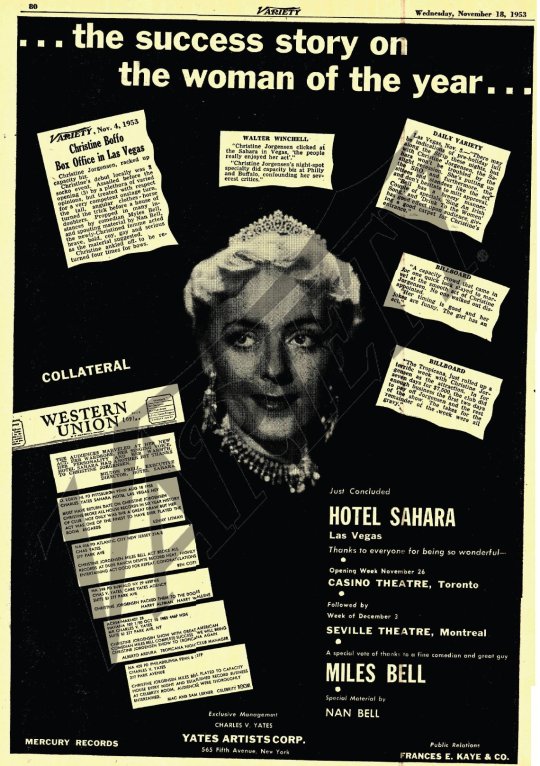
Papers called her the woman of the year in 1953!
3 notes
·
View notes
Text
hey guess what this is now a queer music history blog courtesy as always to JD Doyle's archival work anyways its time for the 80s
youtube
3 notes
·
View notes
Video
youtube
100 Years of LGBT+ Music: From Ma Rainey to Lil Nas X
3 notes
·
View notes
Text

Today it's Jan the 4th, my Birthday! This is my present. Let me tell you why I decided to draw it.
I know MTMTE fans think of Rung letting lose and dancing like a dork- during that party chapter in LL- as a simple gag.
And I mean YEAH it was hilarious, but. You see.
Rung also happen to be, canonically, an anti-fascist icon. A symbol of Liberation, freedom of expression and identity!
GUYS HE'S SO DISCO. HE'S A DISCO QUEEN.
I strongly associate that dancing Rung bit with the unifying force of Disco, of Queer Joy.
It makes me so happy, you have no idea.
Or maybe you do, because I went off with this drawing AHAH!
GAY BIRTHDAY TO MEEEEEEEE~
#maccadam#tf mtmte#rung#mtmte rung#cartoonzy art#I strongly advice all queers to deep dive into the history of disco#trust me it's important to us all#also you get to listen to AWESOME music
262 notes
·
View notes
Text
Listen I could spend forever writing an essay on why Rocky Horror Picture Show works so well but I think it comes down to the movie just being unapologetically horny and queer. It’s a film that says it’s ok to let go of everything dragging you down, it’s ok to be monstrous and strange in all the ways normal society just can’t understand. You should go and be the person you are because you just might end up really enjoying it.
And above all that you can be desirable. You can be sexy and free and fucked up with everyone else who’s just like you.
Why be normal when you can be extraordinary?
#rocky horror picture show#rhps#frank n furter#rocky horror#queer media#musical theatre#queer history#The fact that it came out in the 70s too#Like how brutally personal that mustve been for queer youths#I watched it literally last night btw#It’s been taking up all my brain space#Tim curry
196 notes
·
View notes
Text
I’ve been dancing in queer discos for five years now and I never actually thought about why they always put a lot of 80s’ songs, and then tonight it clicked: it’s about a certain queer generation, it’s about the AIDS crisis, it’s about gaining visibility and freedom, it’s about Thatcher and Reagan, it’s about decriminalisation, it’s about not forgetting anything even if life’s really different right now
#i was born in 1999#i really like 80s music#so for me was just smth enjoyable#and not usually played anywhere else#and eventually i realised#lgbtqia+#lgbtq community#lgbtq pride#queer#queer community#queer history#queer pride#pride#hiv aids#aids crisis#gay history#lgbtq history#lgbtq rights#history#80s#margaret thatcher#ronald reagan#love#mailmiocuoredipietratremaancora
144 notes
·
View notes
Text
So I definitely cried at this concert. 100% I smeared my eyeliner all over the damn place.
Because holy cow, to be in the presence of such an amazingly talented man is an experience beyond words. Rob Halford is still performing, still belting these fucking notes, at 71 years old... in studded leather outfits.
You can bet your ass I sobbed my little gay eyes out to "Never the Heroes" and "You Got Another Thing Comin'". I sat in the audience thinking about how easily we could have lost Mr. Halford in the 80's or 90's and broke into a hundred pieces for a second.
The AIDS epidemic took so many people. Far too many people. We have suffered their loss for years. It didn't happen "in the past", no matter how badly people with conservative views try to bury our history. I mean, Judas Priest was formed in 1969, the same year the Stonewall Riots happened. That was 53 years ago, and AIDS was allowed to take thousands of lives before any serious steps were taken to mitigate its spread.
We still feel the loss of these people every day. We feel it in our homes. We feel it in political polls, education standards, and the Fine Arts. We are wounded, mourning a generation of lost family members and lovers and voters and artists. As a community.
But despite all the darkness, Rob Halford remains! The iconic man who brought leather from gay bars to the metal scene, the man who preaches love and acceptance to the crowds who need it most, the man who saw hatred and said "Fuck you, I deserve to feel my anger and take up space", the Metal God himself, is still rocking out.
#rob halford#rob halford my beloved#judas priest#metal bands#metal music#music history#queer music history#queer history#stonewall#the stonewall riots#queer advocacy#hell bent for leather#video#aids mention#aids history#80's history
42 notes
·
View notes
Text
youtube
When I was a child in the '80s, I absorbed some kind of cultural truism that disco was ridiculous, embarrassing, cheesy, a cultural relic to be mocked at every turn. Remember, I'm under ten years old at this time, and I still manage to get this impression. There was another, milder sea change when grunge overtook the hair metal of the late '80s, so I never questioned the idea that disco should be dead and buried. We like silly things, I thought in my 13-year-old wisdom, and then we get over it.
Then I saw The Last Days of Disco (1998) while I was in college, and suddenly I realized that disco was fun, and it was like—it was in the roots of—music I already loved. And the end of that movie also—hints? tells you? I can't remember how explicitly—that disco didn't just fade like most trends; it was killed off.
I watched a lot of VH1 in those days, the late '90s, with a little TV sitting on my tall university-issue dresser, its corner overlooking my computer desk while I struggled with piles of assignments. This was the heyday of Behind the Music, so it was great background TV. And then one day (1999) they ran a Donna Summer—the "Queen of Disco"—concert special. The video up there is the song that immediately became my favorite of hers. It’s just instant serotonin to me, any version of it. I bought the whole VH1 album on CD, and "This Time I Know It's For Real" may genuinely be one of my all-time favorite songs, now, still, more than 20 years later. You can hear the original version (1989) here (the backing instrumental that I just found today is lovely), but the live version ten years later, the video up there, has a really special comeback—joyous, gracious survival—energy to it.
Watching the whole concert, I got it. Why the fuck did I ever think disco wasn't amazing? It was always the kind of thing I loved; we had all just been pretending that it was embarrassing glitter trash.
And then I found out why we were pretending. From densely-footnoted Wikipedia:
Disco Demolition Night was a Major League Baseball (MLB) promotion on Thursday, July 12, 1979, at Comiskey Park in Chicago, Illinois, that ended in a riot. At the climax of the event, a crate filled with disco records was blown up on the field between games of the twi-night doubleheader between the Chicago White Sox and the Detroit Tigers. Many had come to see the explosion rather than the games and rushed onto the field after the detonation. The playing field was so damaged by the explosion and by the rioters that the White Sox were required to forfeit the second game to the Tigers.
[...]
The popularity of disco declined significantly in late 1979 and 1980. Many disco artists carried on, but record companies began labeling their recordings as dance music. [...] Rolling Stone critic Dave Marsh described Disco Demolition Night as "your most paranoid fantasy about where the ethnic cleansing of the rock radio could ultimately lead". Marsh was one who, at the time, deemed the event an expression of bigotry, writing in a year-end 1979 feature that "white males, eighteen to thirty-four are the most likely to see disco as the product of homosexuals, blacks, and Latins, and therefore they're the most likely to respond to appeals to wipe out such threats to their security. It goes almost without saying that such appeals are racist and sexist, but broadcasting has never been an especially civil-libertarian medium."
Nile Rodgers, producer and guitarist for the disco-era band Chic,
(who survived the disco era to make half the music I loved in the '80s)
likened the event to Nazi book burning. Gloria Gaynor, who had a huge disco hit with "I Will Survive," stated, "I've always believed it was an economic decision—an idea created by someone whose economic bottom line was being adversely affected by the popularity of disco music. So they got a mob mentality going."
The DJ who ran the whole thing, Steve Dahl, complains that it was VH1 itself—you know, those Behind the Music specials I was watching—circa 1996 that labeled the whole debacle as bigotry when it so totally was not, you guys, and he is so tired of defending himself. But I'm gonna tell you, Steve, I don't really care. Maybe Disco Demolition Night was your fault; maybe you were just a part of something so much bigger and uglier that you couldn't see the whole size of it. Can you draw a direct line from the weird bigoted vitriol directed at those dance records to Ronald Reagan, elected the very next year, not giving a single fuck about the AIDS crisis? You probably don't want to, but I will.
And I don't care because I can look around the U.S. right now and tell you, nearly 45 years later, people are trying to demolish a lot more than disco. The Club Q shooter was sentenced to life in prison just a few hours ago. It's Pride Month, and we're all sitting here holding our breaths. That's a terrible way to end a post about a beautiful happy song I love, I guess, unless you turn it around and say, that should have been the whole point of this post in the first place. Listen to this song and think, people wanted to destroy this music, this sound, this joy for some reason. They want to stop people from just living their lives, from dancing. And yet, disco is still here. It was there in 1979, and it was there when Donna Summer released this song in 1989, and it was there when she returned in 1999. The Queen of Disco passed away in 2012, and it's still here. I feel a lot of joy when I listen to this song, but I don't think I'd ever thought about it being the joy of grooving with something just because it’s beautiful, the joy of just being here, still.
#donna summer#music#video#disco demolition night#queer history#lgbtqia+#club q shooting#aids crisis#pride#pride for one thousand years#I feel really hesitant about the turn this post took but#if the dots are there you gotta connect them#long post#music discussion
208 notes
·
View notes
Text

Madonna 1986 New York City by Bruce Weber.
#madonna#music#dance#1980s#retro#80s#singer#b&w#style#gender#lgbtq#culture#fashion#bruce weber#queer history#gay#queer#pop#icons#celebs#📸#true blue#💙
120 notes
·
View notes
Text
WAIT FUCK GUYS I'VE NEVER SHARED THIS??? HOW?!?
ANGRY ATTHIS BY MAXINE FELDMAN WITH INTRODUCTION/BRIEF INTERVIEW WITH MAXINE FELDMAN BY JD DOYLE
YOU WANT SOME GOOD ANGRY QUEER MUSIC THEN FUCKING DAMMIT YOU WILL GET SOME GOOD ANGRY QUEER MUSIC
1 note
·
View note
Text
“The queer – always already the exceptional, the odd, the outsider, the outcast – lies at the heart of circus’ practices and meaning."
Charles R. Batson
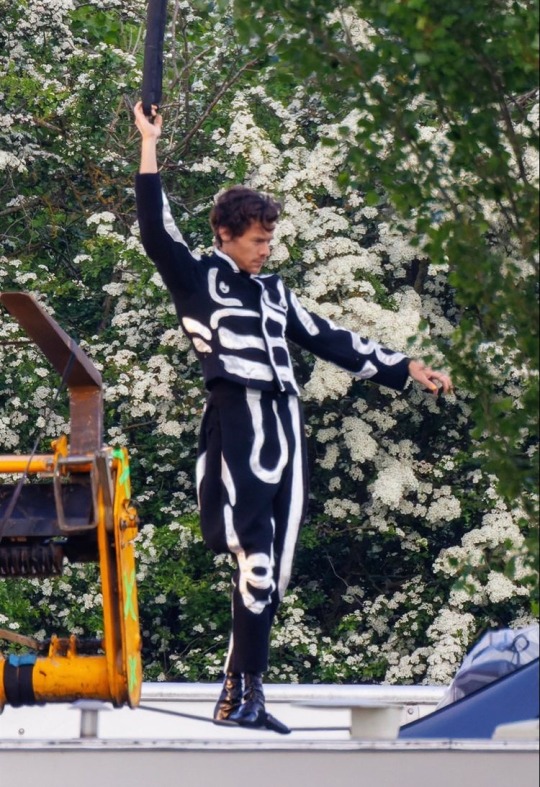
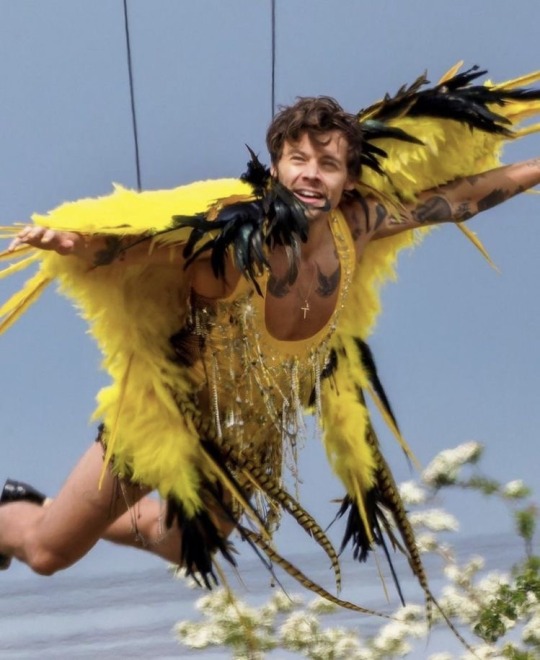

#harry styles#one direction#larry stylinson#harrys house#larries#lgbtq#music theory#queer history#daylight music video#larry#polari#queer culture
129 notes
·
View notes
Text
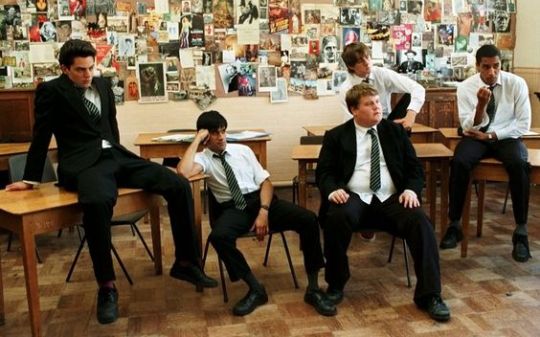
I appreciate and understand the love for Dead Poets Society in the Marauder-era fandom. The aesthetic is immaculate.
As a Brit and an older fan I would like to make a public service announcement that you're all sleeping on The History Boys. And would encourage everyone to go watch it.
#mauraders#wolfstar#the marauders#dead gay wizards#history boys#the history boys#marauder era#marauder coded#this film is a more accurate representation of the British school experience#plus it's a queer classic#the dialogue is *chefs kiss*#the performances are amazing#the references to art and film and music and literature are 10/10#public service announcement#alan bennett is incredible#give it a go#examines class and education in Britain#the film soundtrack is also amazing#is also more diverse than dead poets society
33 notes
·
View notes
Text

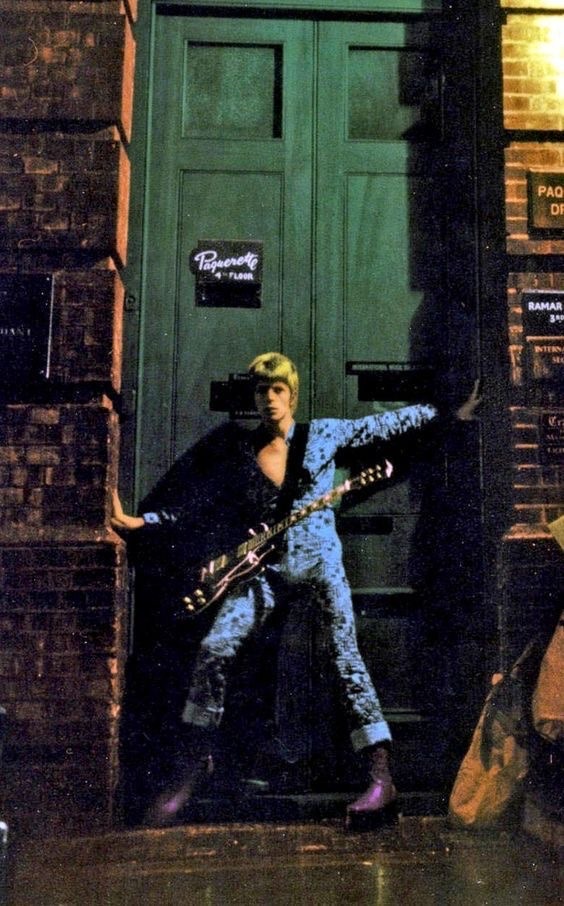
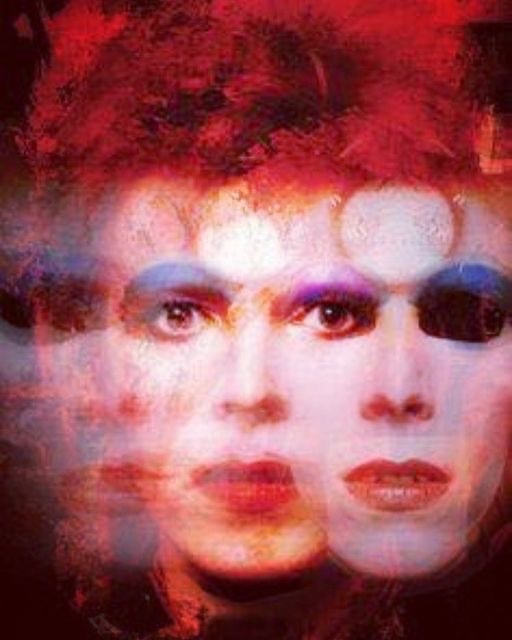
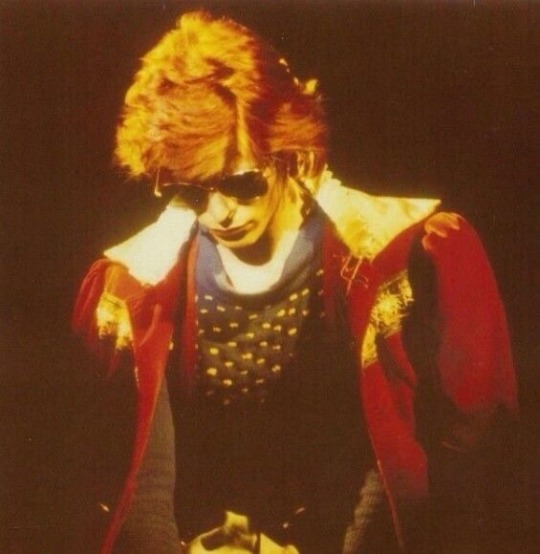


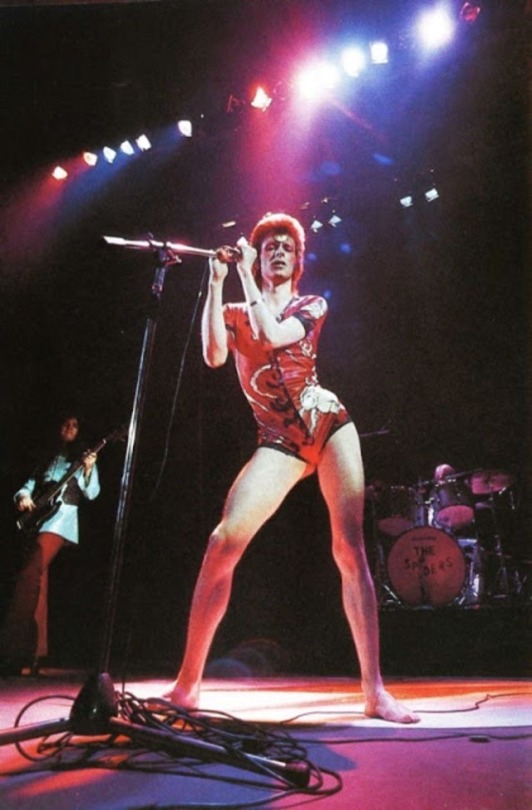
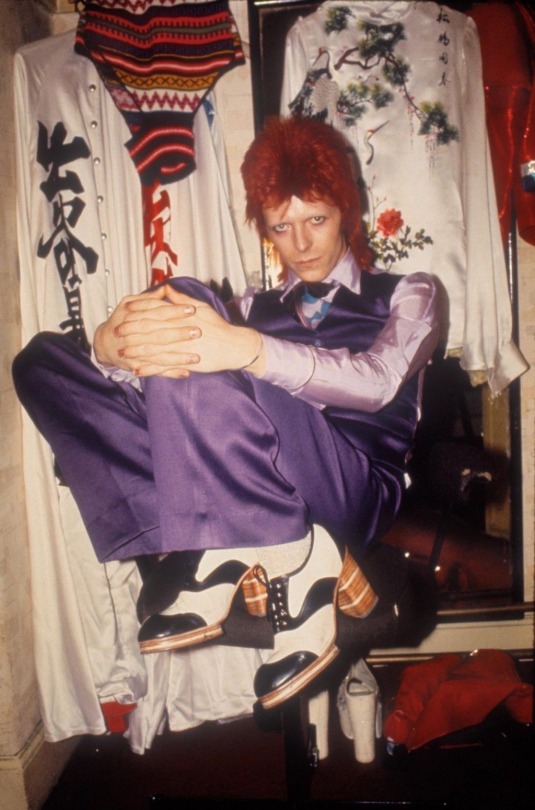
David Bowie.
#david bowie#starman david bowie#rebel rebel#heroes#the rise and fall of ziggy stardust and the space monkeys from mars#ziggy stardust#art rock#alt rock#rock and roll#70s fashion#70s#70s music#blackstar#aladdin sane#hunky dory#lgbtq#lgbtq icons#gay icons#queer#queer icons#queer history
19 notes
·
View notes
Text

Honey Dijon: one of the first Black trans women to land a Top 40 hit single on the Billboard Hot 100.
#honey dijon#lgbt#black lgbt#trans women#black trans women#lgbt music#queer music#lgbt musician#lgbt firsts#lgbt history#trans history#black history
180 notes
·
View notes